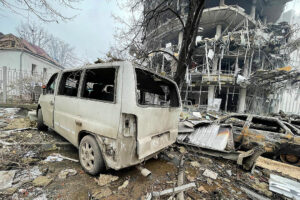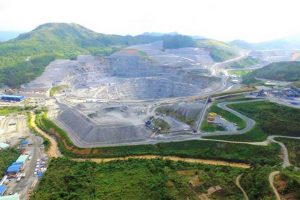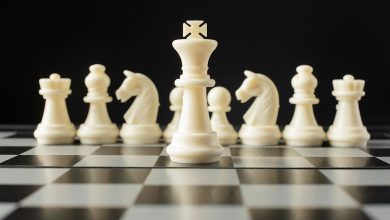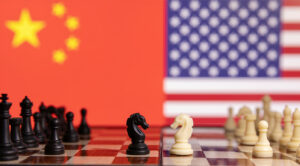Empire ambitions

The invasion of Ukraine launched by Russian autocrat Vladimir Putin continues without let up four months since it started on Feb. 24. The Russians had hoped to proclaim victory by capturing Ukraine’s capital Kiev and disposing of the Ukrainian President Volodymyr Zelensky, his family, and all other Ukrainians, government and private personalities, who “brought Ukraine closer to the west,” a few days after marching into Kiev.
Putin’s first rationale for the invasion was to “de-Nazify” Ukraine. The truth of the matter is the message did not fly since Zelensky and millions of Ukrainians are Jews. The Denazification message was meant to camouflage his personal dislike and disdain for Zelensky, a former actor-comedian who won election by a substantial margin over a Russian-backed candidate.
In a recent television address to the world, Zelensky issued a renewed appeal for help from the West, pleading for heavier artillery to counter the invasion which, by Zelensky’s count, has launched 2,606 cruise missiles, hitting different cities to cause deaths and untold suffering. It seems the Russian objective is to bring down Ukraine “no matter the cost.” Achieving that objective meant adopting a “scorched earth” policy which calls for destroying every object around and killing anything that moves. Farm lands which produce wheat that is supplied to many regions, most notably Africa and Latin America, have been destroyed. Milling facilities have been bombed. Grain that is being shipped to other countries has been blocked by the Russian naval armada in the Black Sea, threatening to create a serious famine especially among vulnerable nations already confronting an oil crisis. In short, a double whammy.
As of now Putin and his generals (a number of whom have perished in the battlefront more likely for recklessness based on over-reliance on Russia’s military superiority) are concentrating on capturing the key industrial city of Severodonetsk in Ukraine’s eastern region. This shift in focus occurred almost four months after Putin invaded Ukraine to “de-Nazify” the former member of the Union of Soviet Socialist Republics (USSR). Now, Putin has radically changed his tone. The Russian President, who has ruled Russia for more than 20 years, is now invoking Peter the Great to justify the invasion of Ukraine.
During a tour of Moscow and the Red Square in 2013, our Ukrainian tour guide (who has, incidentally, gone incommunicado after expressing deep sadness on the first day of the invasion of Ukraine), described Peter the Great as an egotistical and self-centered leader, who co-ruled Czarist Russia with a step-brother for some time, from the age of 10 until he died at 52. Peter the Great formed an anti-Sweden alliance and waged war against Sweden to recover lost territories and to enhance his stature and prestige among monarchs during the 17th century. Like Peter the Great, Putin is whipping up patriotic fervor with the aid of media which were nonexistent during Peter the Great’s reign. During Putin’s reign, Kremlin-controlled media is leading the formation of so-called patriotic youth groups. For example, these patriotic groups are told that Ukraine — and probably other now-independent countries like Lithuania and Estonia — have to be recovered at some point to complete and rebuild Russian glory. Such threats have led to calls by Putin allies for the derecognition of the independence of Lithuania. Of course, Putin’s sagging image will be rebuilt by these wars. Putin is clearly copying Peter the Great — although physically, the 6’7” Peter the Great dwarfs Putin who is probably no more than 5’9”.
Many measures are being taken by Russian authorities to support the use of patriotism as the reason for the war against Ukraine. One of these is the creation of normalcy among Russian cities. One obvious example of this attempt is, as reported by CNN, to assure the Russian person-in-the street, especially the middle class, that everything is under control despite all the sanctions that have hit the Russian economy. Several American and global brands have left Russia in protest over its illegal invasion and occupation of Ukraine.
McDonald’s, the burger chain which represents American business presence in virtually all countries, left Russia and closed all its stores to protest the invasion. Kremlin made sure the burger chain, very popular among its middle class, was replaced almost immediately by a new local brand, Vkusho & Tochka (Tasty and That’s it), lest Russians start to wonder why global brands and businesses are terminating business in increasing numbers. Putin’s propagandists probably felt it was not enough that Russians are incessantly bombarded by state media about patriotism, recovering territory that is theirs, and reliving the glory days of Czarist Russia. They have to see and feel for themselves that everything is normal by being able to enjoy the simple pleasures of daily living in a world power like Russia. All these are designed to take their minds off the few bits of news that slip through the censorship net about atrocities committed by Russian soldiers, including rape, bombing of hospitals, the loss of Russian lives and the enormous expense to wage an unjustifiable war. Whatever, however you call it in whatever language, it is still not McDonald’s.
What are the implications of this war on the Philippines?
The Philippines voted to condemn the Russian invasion of Ukraine in a Resolution passed by the United Nations General Assembly. Although a moral victory for the West and its allies like the Philippines and Singapore in Southeast Asia, the Resolution is non-binding and it is up to individual countries to carry out that Resolution, if at all. Consistent with the Duterte administration’s approach to Philippine relations with Russia and the United States, it was reported later on that the president declared that the Philippines is neutral in this conflict.
According to statistics provided by the Bangko Sentral ng Pilipinas (BSP), the country’s total exports to Russia in 2021 amounted to about $120 million, or about 0.2% of its total exports, while the Philippine exports to Ukraine amounted to $5 million. Imports from Russia in the same year comprised 0.6% of its total imports and for Ukraine, 0.1%. While trade between Russia and the Philippines has increased over the years, Russia remains far down the list, at 31, of the Philippines trading partners. Ukraine must even be much lower.
The modest level of trade and business involving the Philippines and Russia on one hand, and the Philippines and Ukraine on the other, is probably one of several reasons why economic managers like Finance Secretary Carlos Dominguez III thinks the impact of the Russia-Ukraine crisis on the country is “temporary.”
Whether temporary or longer lasting, the impact that the conflict will have on the country is in energy and food prices, the two major cost items for most Filipinos. And the impact is not a direct one but rather due to the effect the crisis has on our major trading partners like the US and the European Union.
The problem and issues can be broken down into smaller components to have a better sense of what solutions would have a better chance of success. The incoming administration has its work cut out for it.
Philip Ella Juico’s areas of interest include the protection and promotion of democracy, free markets, sustainable development, social responsibility and sports as a tool for social development. He obtained his doctorate in business at De La Salle University. Dr. Juico served as secretary of Agrarian Reform during the Corazon C. Aquino administration.




